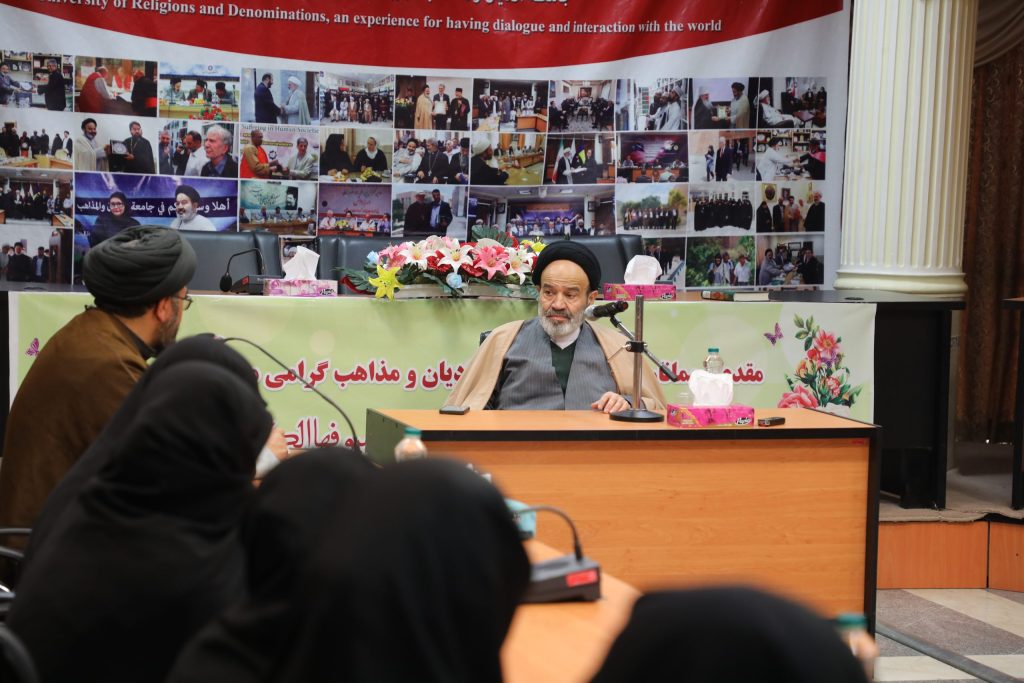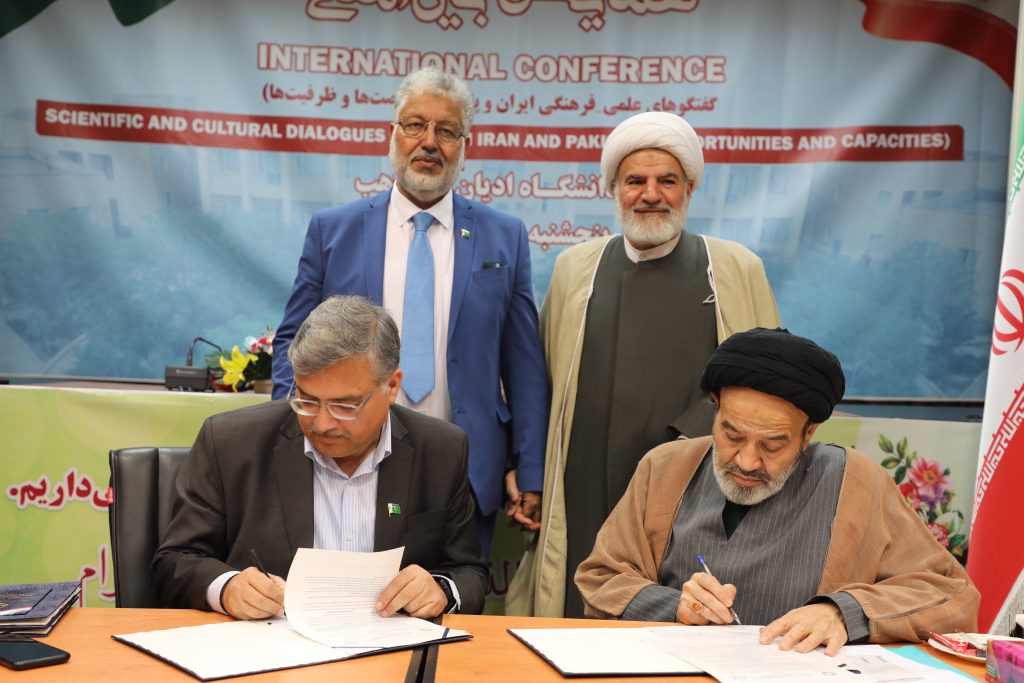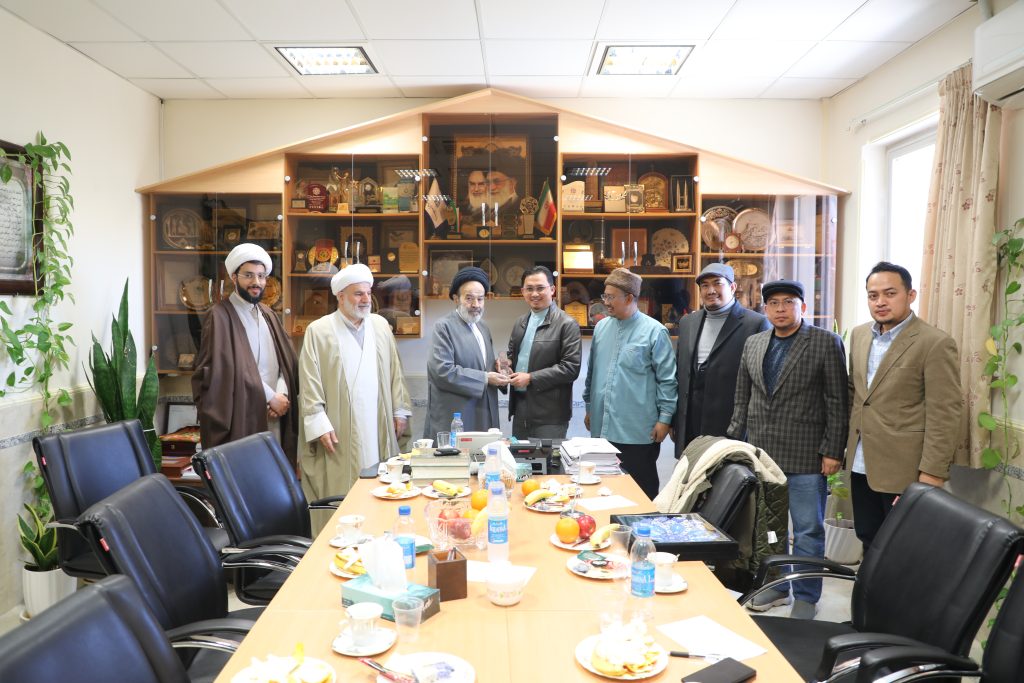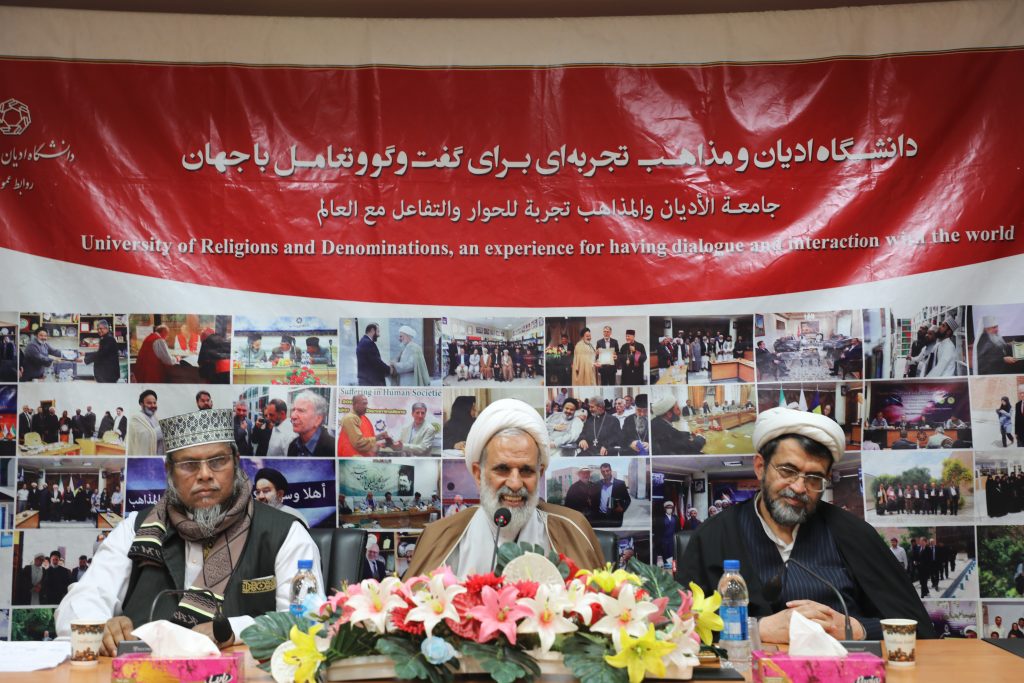Catechism of the Catholic Church; Translated into Persian at URD, Unveiled in Rome
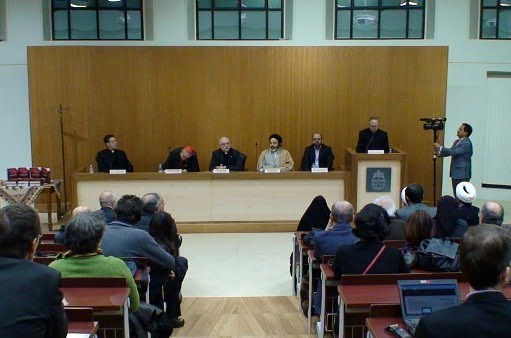
The Persian translation of the Catechism of the Catholic Church, by three scholars from the University of Religions and Denominations (URD), was unveiled in Rome, according to Dr. Navvab the president of URD.
In a interview with the website of URD Dr. Navvab publicized this news and added that in a very high-leveled ceremony with the presence of up to 200 dignified guests from Vatican and other countries, the Persian translation of the Catechism of the Catholic Church was unveiled at the Pontifical Gregorian University in Rome on the 12th day of the Christian new year, 2015.

The president of URD also added that the University of Religions and Denominations in Qom seeks to boost interreligious dialogue and mutual understanding and believes that one of the ways to achieve this goal is to translate the top books of the other religions into Persian; so we decided to have the Catechism of the Catholic Church be translated into Persian and our colleagues at URD: professors Meftah, Suleimani and Ghanbari accomplished the work.
Dr. navvab pointed to the Vatican,s role in the project and said that Cardinal Jean Louis Tauran wrote the introduction, and various Catholic officials reviewed the book.
He also added that various Catholic officials in Iran checked their translation, in addition to the introduction by Card Jean-Louis Tauran, president of the Pontifical Council for Interreligious Dialogue.

Prof Meftah also told URD website about the path they followed for the translation of the Catechism. “When we began to study other religions, some of us studied Christianity. We needed an authoritative Christian source to study, for us and for our students. Dr Legenhausen, a Catholic from the United States who teaches in our universities, convinced us that the Catechism is important for Catholics. Therefore, we started to translate it in order to understand better the Catholic faith, both for ourselves and for our science. We have always wanted to study and research, translating into Persian some Christian books, like the Gospels or The City of God by Augustine.”

From the Left:professors: Ghanbari ,Meftah, Suleimani
Meftah added; “We translated the catechism from the English version, and then compared it to the Arabic version. We wanted to translate it very accurately. This is why we needed that the translation to be somehow confirmed by the Vatican. We gave the book to an Italian Catholic who knows Persian, and had him check it against the original Latin text. It took nine months just for this! He closely compared the versions and gave us some tips. After this, some of our friends revised the translation once more. Last year, we wanted to publish this book and we got in touch with Fr Franco Pirisi (a Salesian who has worked for decades with the Nunciature in Tehran) who helped us have some sort of official confirmation from the Vatican. Fr Pirisi knows Persian very well. After reading the whole book, he gave us an introduction by Card Jean-Louis Tauran, which he translated into Persian. Now the book is ready. It will be released by the university’s publishing house but with . . . the Vatican stamp of approval. It was fundamental to ask the Nunciature for its permission to publish it, asking them to read it carefully. And they have confirmed our translation.”
It must be said that under Iranian law, every Christian church has the right to use its own language (Armenian, Chaldean, Latin, English, etc.) but not the Persian language, perhaps out of fear of facilitating what the authorities call “proselytizing”. For this reason, it would have been impossible for the Catholic Church to publish the book in the Persian language.
“This way,” Prof Meftah said, laughing, “we helped the freedom of expression of Christians. It was not our main goal, but one of the outcomes. For us and our students, it was important to know more about Christianity from what Christians say about themselves and not from what others say. Thus, we can remove misunderstandings and ideological schemes as well as foster respect for each other. This is a practical step to boost dialogue between us.”
Prof Meftah also expressed that in this way, we can show dialogue in a very practical way. It is an opportunity to show our openness to dialogue: we are ready to talk with you without restrictions. Moreover, this is probably the first time that a Catholic book of this significance is translated by a group of Muslim scholars. “
Ahmad Reza Meftah and his colleagues point out that this attitude of openness towards other religions is nothing new.
Finally Dr. Meftah noted the convenient situation of the Christian minority living in Iran and said: “the relationship between Islam and Christianity in Iran cannot be compared with the situations of other Islamic countries; Christians in Iran are safe (from attacks) and we can share a common purpose. If we look at each other as friends, we will not have problems. But if we look at each other as enemies, with suspicion or indifference, if we compete, trying to steal something, it will be like in other countries, including terrorism. Treating each other as friends eliminates terrorism, and makes us take steps towards peace.
To watch a short video clip from the ceremony please click here

